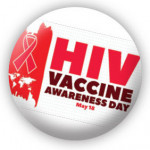Got HIV? You’re Still Excludable!
The final step in removing the policy of excluding those with HIV required the Department of Health and Human Services to remove HIV from its regulation listing “communicable diseases of public health significance.” (42 CFR 34.2(b).) That’s not what happened.
On April 10, 2009, HHS forwarded regulations to the Office of Management and Budget (OMB) for review. As of now, visitors to the U.S. will still be asked whether they have HIV. They will then be asked to sign the following certification:
I certify that:
a) I do not currently show symptoms indicative of an active AIDS-related condition that is
contagious or that requires urgent treatment.
b) I am aware of, understand, and have been counseled on the nature and severity of my
medical condition. I am also aware of and have been counseled on the communicability of my
medical condition, including the fact that I must not donate blood or blood components.
c) I am knowledgeable of the routes of transmission of HIV, including sexual contact, sharing needles, and blood transfusions, and understand that I must avoid these activities to minimize the danger of transmission of the infection to any other person in the United States.
d) If I have been prescribed antiretroviral drugs, I have access to an adequate supply for my
anticipated stay in the United States.
e) I possess sufficient assets or insurance, acceptable in the United States, to cover any medical care that I may require in the event of illness at any time while in the United States. Therefore, I will not create any cost to the United States, or a State or local government, or any agency thereof, without the prior written consent of that agency.
f) I am seeking admission solely for activities that are consistent with B-1 (business visitor) or B-2 (visitor for pleasure) nonimmigrant classifications.
g) I understand that I am not eligible to seek admission under section 217 of the Immigration and Nationality Act, which allows some visitors from specified countries to be admitted without visas.
h) I understand and agree that no single admission to the United States will be for more than 30 days.
In signing below, I understand that I am waiving the opportunity to apply for any extension of nonimmigrant stay (except under the appropriate circumstances, at its discretion the Department of Homeland Security (DHS) may grant an additional period of stay before satisfactory departure), a change of nonimmigrant status, or adjustment of status to that of permanent resident (except in asylum cases), whether filed affirmatively with DHS or defensively in response to an action for removal. I understand and agree that any failure to comply with conditions of admission will result in a permanent inability to apply for the benefits of this provision.
___________________
(Applicant’s Signature)
At first glance, the procedure doesn’t seem so bad; it merely asks if you are positive, and if you disclose the truth, that you assure the government that you’ll exercise a little caution, right? But why are we asked about HIV at all? And who reviews these forms after they are submitted? Can HIV+ travelers still be banned from entering the U.S.?
The simple fact is that we are still being subjected to institutional scrutiny, and there are no guidelines or limits to the authority of the immigration agents who review the disclosure forms. You can still be excluded from the U.S.because you have HIV.
Has Obama betrayed us? Why are there still any HIV+ travel restrictions? One can only conclude that our government still assumes that there are a significant number of HIV+ men and/or women who might spread HIV through carelessness or worse, intentionally. It assumes that we can’t be trusted.
As a result, no U.S. Government agency has published a definitive rule that prohibits itself or its employees from excluding HIV+ visitors.
This isn’t the first time that America has marginalized a suspect minority. In 1944, In Korematsu v. United States, the U.S. Supreme Court agreed that it was perfectly fine and dandy to relocate Japanese-Americans to protect the country from saboteurs and spies for the public good. Despite much criticism, including a “proclamation” by President Gerald R. Ford in 1976 that the segregation of Japanese-Americans was wrong, Korematsu remains the law today.
So what can we do about it? Do the numbers support this de facto AIDS apartheid? Is it fair to assume that we are a public health risk? Uncle Sam seems to think so. Unfortunately, and unless our voices are heard, he’ll keep pointing a finger of suspicion and stigma at all of us.
David H Weiss is an attorney admitted to practice before the Courts of the State of New York and the United States. He has been living with HIV for almost 30 years. His website, which is desperately in need of an update, can be viewed at DavidWeissNY.com







5 Comments
5 Comments